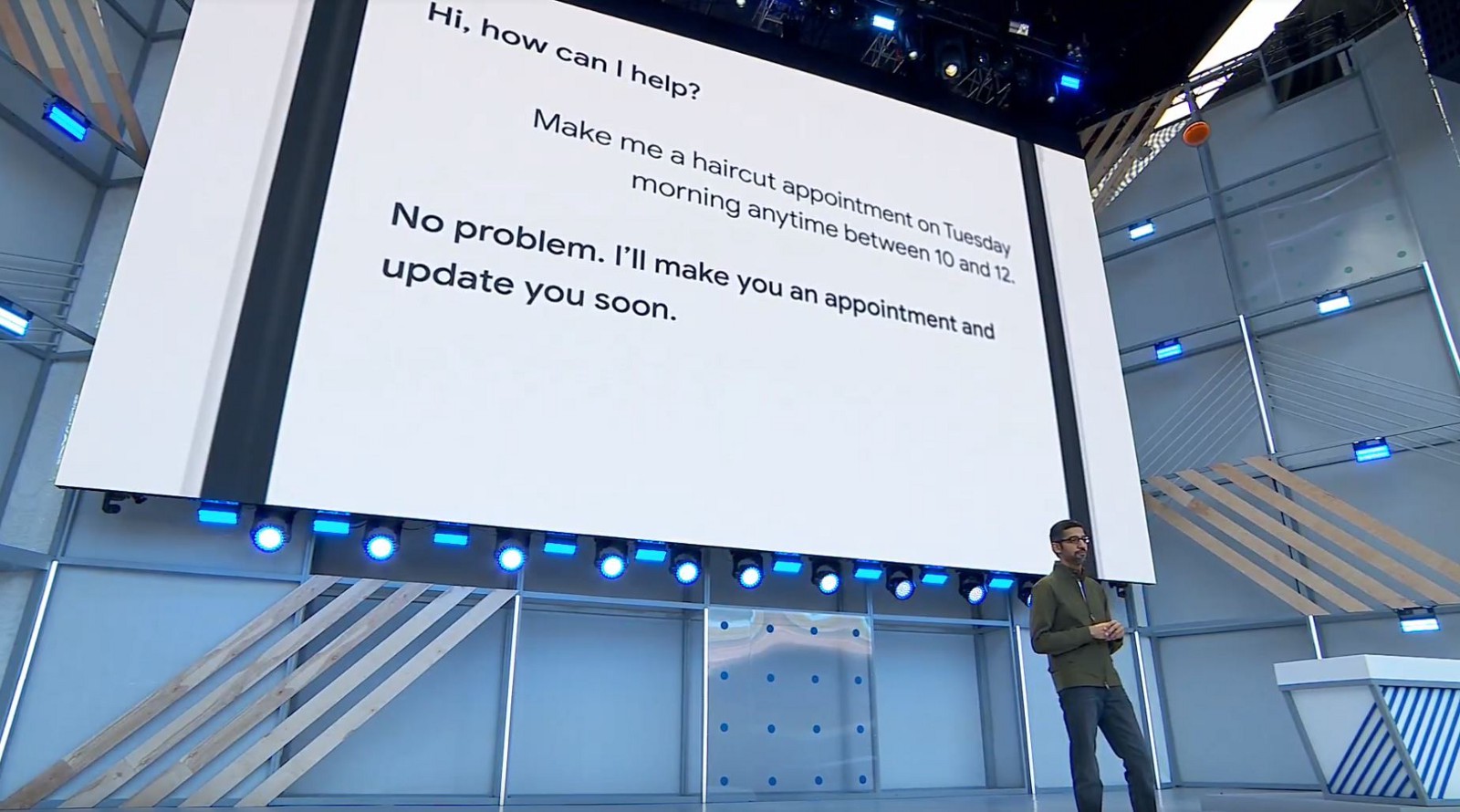Google has shown off a new AI assistant that can make calls on your behalf -- and sounds just like a real person.
In a speech at Google's I/O developer conference, CEO Sundar Pichai gave the first major public demonstration of Duplex, an AI assistant that can make a booking at a restaurant or hairdresser for you.
“The technology is directed towards completing specific tasks, such as scheduling certain types of appointments,” Pichai said.
“For such tasks, the system makes the conversational experience as natural as possible, allowing people to speak normally, like they would to another person, without having to adapt to a machine.”
“We’re still developing this technology, and we want to work hard to get this right,” he said. “We really want it to work in cases, say, if you’re a busy parent in the morning and your kid is sick and you want to call for a doctor’s appointment.”
Google showed off what it said were real phone calls made by Google Duplex. The first was to make an appointment with a hair dresser, a call that was straightforward and went smoothly.
The second call was to a restaurant, and demonstrated how capable Google was at adjusting to unexpected situations in the phone call.
The receiver was a non-native English speaker, and there were several misunderstandings that Google Duplex resolved smoothly.
Perhaps the most stunning feature of Google Duplex is how much like a real person it sounds. The voice assistant demonstrated at Google I/O was indistinguishable from a human caller, so much so that receivers did not recognise that they were talking to an AI.
It provided human-like responses, including pauses, inflections, and even the occasional "mmhmm", while the other person was speaking. It also interrupted the other person to ask for clarification and adapt to unexpected turns in the conversation.
If a conversation goes really off the rails, Duplex can then seek the help of a human to take over.
According to Google, Duplex is still under heavy development and will not be made available for public use just yet. The AI will only work in what the company calls “closed domains”; that is limited contexts such as making an appointment, booking a restaurant or finding out a business’s opening hours.
In a blog post on its site, Google noted that in the long term, it sees applications for the technology in both the home and business. “Businesses that rely on appointment bookings supported by Duplex, and are not yet powered by online systems, can benefit from Duplex by allowing customers to book through the Google Assistant without having to change any day-to-day practices or train employees,” the post read.
With the AI sounding so much like a real human, a number of commentators have brought up the potential ethical issues with the technology.
Speaking to The Verge, Google representatives noted that it believes people should be informed when they’re speaking to an AI, although it wasn’t sure yet about the optimum way to do that, since people might hang up immediately if informed they’re speaking to a robot.









